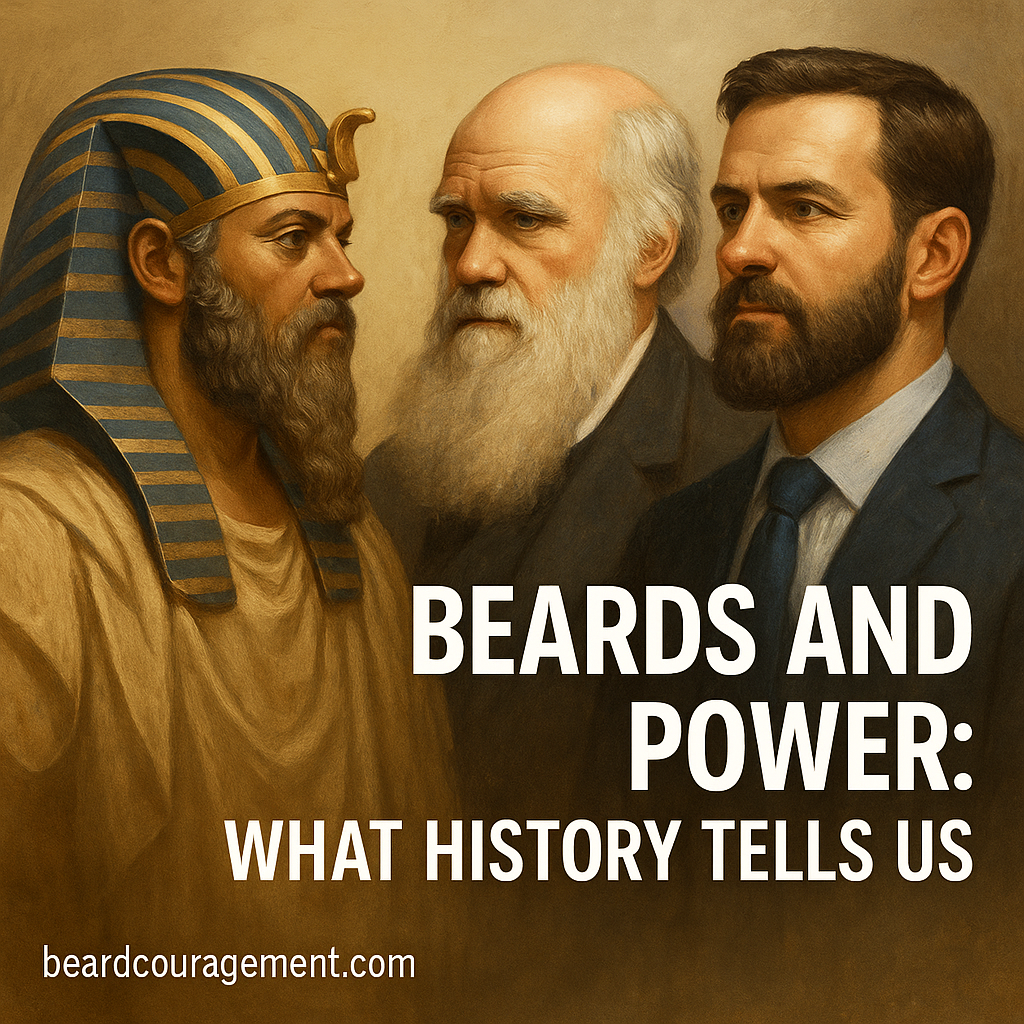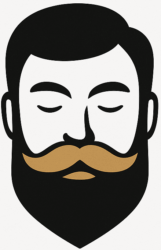
Throughout history, the beard has been more than just facial hair — it’s been a symbol of strength, wisdom, and authority. Across empires and eras, powerful men have worn beards to project dominance, maturity, and respect. From ancient rulers to modern icons, the connection between beards and power has stood the test of time.
Ancient Civilizations and the Power of the Beard
In ancient times, the beard was often seen as a divine mark of masculinity and leadership.
- Egypt: Pharaohs, even when clean-shaven, wore false beards made of gold or leather as symbols of godlike power and kingship.
- Mesopotamia: Kings and warriors in Babylon and Assyria sported elaborately curled beards to convey wealth and might.
- Greece: Greek philosophers and leaders, including Socrates and Plato, viewed beards as symbols of intellect and virtue — a sign of both inner and outer strength.
- Rome: Early Roman generals grew beards to show courage and experience in battle before clean-shaven styles became associated with discipline and order.
In these societies, the beard wasn’t just hair — it was a declaration of identity, a physical expression of authority and self-control.
Beards as Cultural Power Statements
As empires shifted, so did attitudes toward beards. In medieval Europe, knights and kings often equated beards with honor and masculinity. Touching another man’s beard without permission was considered an insult — sometimes even a reason for a duel.
In contrast, during the Renaissance, short and styled beards represented sophistication and intellect. By the Victorian era, beards made another comeback, symbolizing moral strength and respectability. Public figures like Charles Darwin and Abraham Lincoln helped redefine beards as signs of wisdom and integrity.
The Beard in Religion and Philosophy
Many spiritual and religious traditions also connect beards with wisdom, piety, and moral power:
- In Judaism, the beard is a divine sign of dignity and devotion.
- In Islam, it represents faith and discipline.
- In Sikhism, maintaining uncut hair, including the beard, reflects respect for the perfection of creation.
- In Christian monastic orders, beards often signified humility and spiritual dedication.
Across cultures, the beard has symbolized a bridge between the physical and the spiritual — a mark of responsibility and maturity.
Modern Beards: Power Redefined
In today’s world, beards continue to carry social weight — but now the message is more personal.
- In business, a well-groomed beard can project confidence, creativity, and leadership.
- In culture and fashion, it represents individuality and authenticity.
- In politics and media, bearded figures are often seen as trustworthy and grounded.
Modern beard culture blends tradition with expression. It’s not about dominance, but about self-mastery — owning your image and identity in a world that values confidence and authenticity.
The Takeaway: The Power Is in the Presence
History shows that a beard has always meant more than facial hair. It’s a reflection of how men have expressed authority, wisdom, and respect through the ages.
Whether shaped with precision or grown naturally, the beard remains a universal emblem of power — not just the power to lead others, but the power to define yourself.
